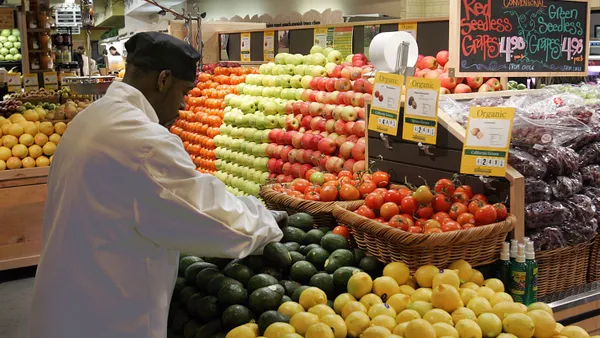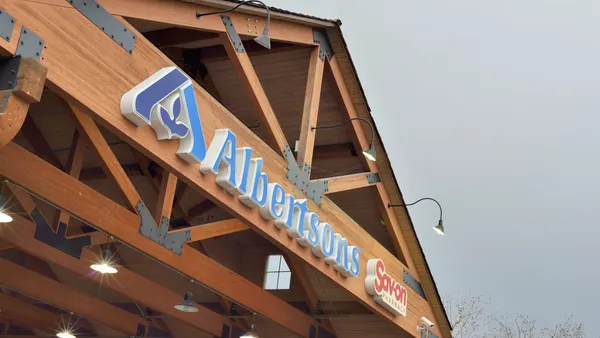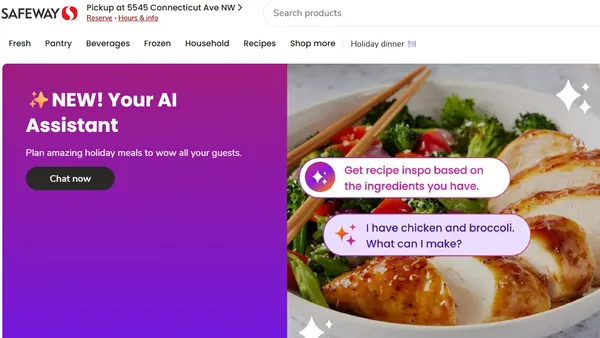Dive Brief:
- Ahold Delhaize's U.S. distribution unit, ADUSA Supply Chain, is expanding its use of wearable robotics technology, known as "exosuits," that helps workers lift items in distribution centers following a year-long pilot, the Dutch grocer said on Tuesday.
- The company plans to roll out more than 250 of the devices, which Ahold Delhaize said reduce strain on a person's back by 30% to 40% during an ordinary workday.
- Ahold Delhaize's embrace of the assistive technology builds on other efforts by the supermarket to infuse automation into its operations.
Dive Insight:
Ahold Delhaize's decision to move ahead with systems designed to take some of the physical strain out of their work aims to turn one of the industry's toughest jobs into a less taxing experience.
When wearing the exosuit, an item that weighs 22 pounds feels like it's 14 pounds. The added lifting power offered by the devices developed by Verve Motion has translated into reduced fatigue and soreness and improved posture among workers who have tested it, Ahold Delhaize said in the press release.
Beyond making workers' jobs easier, the equipment cuts the likelihood of injuries and improves productivity, ADUSA Supply Chain President Chris Lewis said in a statement. Workers can put on one of the exosuits in under 30 seconds, according to Ahold Delhaize. The batteries that power the systems last for an entire shift, even if a worker clocks in overtime.
The technology behind the assistive suits stems from work Cambridge, Massachusetts-based Verve did for U.S. government agencies including the Defense Advanced Research Projects Agency, National Institutes of Health and National Science Foundation, according to the company's website.
The suits are designed to learn and automatically adapt to the wearer's movements, allowing them to engage when needed yet not affect a person's motions otherwise, Verve says.
Ahold Delhaize, which plans to control all of its U.S. retail distribution by the end of next year, has also recently taken steps to automate its e-commerce fulfillment processes and tap robots to help keep its stores clean. In February, the company said it would test automated micro-fulfillment technology from AutoStore at an online order-processing facility it is constructing in Philadelphia and proceed with testing MFC systems at other locations.
Last year, Ahold Delhaize held a competition through a lab it runs in Europe jointly with the Delft University of Technology in the Netherlands to identify companies to supply robotic technology to sanitize stores.
Other grocers are also wading deeper into robotics. For example, Schnuck Markets said last year that it would deploy inventory robots designed to autonomously scan shelves in more stores following a positive experience with the devices in 16 stores. In addition, Save Mart said in April that it would test the robots, built by San Francisco-based Simbe Robotics, in seven Northern California stores.










